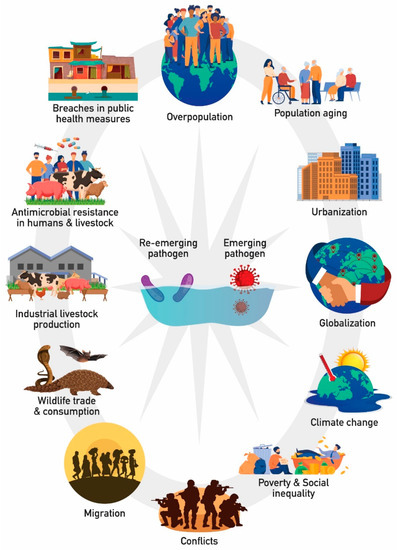The Role of Accessible Healthcare
Accessible healthcare is the cornerstone of a healthy society. It encompasses a wide spectrum of services, including primary care, emergency services, specialized treatments, and preventive care. When healthcare is readily available, people are more likely to seek timely interventions, which can significantly reduce the occurrence of chronic conditions and improve overall health outcomes. Accessible healthcare not only helps to treat existing health problems but also ensures the population stays healthier in the long term by encouraging preventive measures and early diagnosis. A society with accessible healthcare is one where the health of individuals is prioritized, which in turn benefits the community's productivity and general well-being.
 Preventive Care and Early Intervention
Preventive Care and Early Intervention
Preventive care is one of the most significant aspects of accessible healthcare. This type of care, which includes vaccinations, routine check-ups, and health screenings, helps to detect and treat potential health issues before they develop into more serious conditions. Early intervention can prevent a range of health problems, such as heart disease, diabetes, and cancer, from progressing to more severe stages. By addressing health concerns early, individuals can avoid expensive treatments later on, ultimately reducing the financial strain on both the individual and the healthcare system. Accessible preventive care not only improves life expectancy but also encourages healthier lifestyles and habits, fostering a community-wide culture of health and wellness.
 Improved Quality of Life
Improved Quality of Life
When individuals have access to the necessary healthcare services, their quality of life improves substantially. For those living with chronic conditions such as hypertension, asthma, or diabetes, access to regular check-ups and treatments can help them maintain control over their conditions and live active, fulfilling lives. Accessible healthcare also helps to reduce the stress and uncertainty often associated with untreated health conditions. By addressing healthcare needs promptly, individuals experience fewer interruptions to their daily routines, contributing to a higher standard of living and overall well-being. A healthy population, in turn, is a more productive workforce, which further contributes to societal prosperity.

Economic Impact
The economic implications of accessible healthcare are vast and significant. When individuals are healthier, they are more likely to remain active in the workforce, reducing absenteeism and improving productivity. Furthermore, the overall cost of healthcare is reduced when individuals have access to early-stage treatments and preventive care, preventing more expensive medical interventions later. Accessible healthcare also reduces the economic burden on families and communities, as it minimizes the need for emergency medical services and the long-term financial effects of untreated illnesses. Ultimately, accessible healthcare leads to a healthier, more prosperous society with a more robust economy.
 Factors Contributing to Accessible Healthcare
Factors Contributing to Accessible Healthcare
There are several key factors that influence healthcare accessibility. These include the availability of resources, the presence of supportive policies, health literacy, and community involvement. The infrastructure of healthcare systems, such as hospitals, clinics, and medical supplies, plays a vital role in ensuring accessibility. Additionally, healthcare policies that prioritize universal coverage and equitable distribution of resources are fundamental in providing equal healthcare opportunities for all. Education about healthcare options and the importance of seeking medical help when necessary also contributes to increased healthcare engagement. Lastly, community-based support systems are essential in creating networks that help individuals access the healthcare services they need.
Infrastructure and Resources
A strong healthcare infrastructure is a critical element in making healthcare accessible to all individuals. This includes well-equipped hospitals and clinics, a sufficient number of healthcare professionals, and access to essential medical resources like medications and diagnostic tools. A lack of adequate infrastructure can lead to delays in treatment, lower-quality care, and decreased patient satisfaction. In some regions, particularly rural or underserved areas, infrastructure deficits are a significant barrier to healthcare accessibility. Improving healthcare infrastructure not only increases service delivery but also ensures that healthcare systems can effectively respond to a growing population's needs.
 Healthcare Policies and Legislation
Healthcare Policies and Legislation
Healthcare policies and legislation are fundamental to ensuring that healthcare services are accessible and equitable. Policies that provide insurance coverage, protect patient rights, and allocate healthcare resources efficiently are necessary to create a fair and inclusive healthcare system. Strong legislation can address issues such as the affordability of care, especially for vulnerable populations. Comprehensive healthcare policies can lead to improved access to care for all, regardless of socioeconomic status, race, or geographic location. When governments and policymakers prioritize healthcare access in their agendas, it fosters a healthier society and reduces disparities in healthcare.

Education and Awareness
Health education plays an essential role in making healthcare more accessible. By increasing health literacy and raising awareness about preventive measures, people are more likely to seek medical attention when needed. Educational campaigns can help individuals understand the importance of regular screenings, healthy lifestyles, and vaccination programs, all of which contribute to better overall health. Moreover, education empowers people to navigate the healthcare system effectively, making informed decisions about where and when to seek care. Promoting awareness at the community level is particularly important in ensuring that vulnerable groups, including those in rural or impoverished areas, have the knowledge they need to make healthcare a priority.



You must be logged in to post a comment.